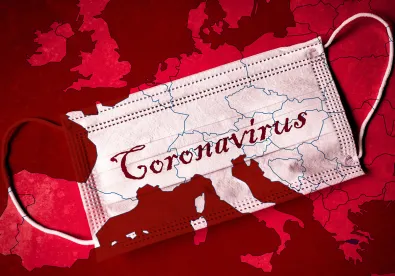Against the backdrop of Coronavirus Disease 2019 (COVID-19) pandemic, by means of Law Decree n. 23/2020 (Decreto Liquidità), the Italian government introduced measures aimed at countering, among all, the risk of predatory buying of assets and shares of Italian companies.
In detail, the Decreto Liquidità provided certain amendments to the Italian Consolidated Law on Finance (TUF), with a view to enhance transparency on acquisitions of relevant participations in the current situation of market volatility. Hence, CONSOB (the securities market government regulator) – by adopting Resolution no. 21304 - was authorized to establish new minimum thresholds for the notification of relevant participations with reference to companies with shares widely distributed among the public, which were set at 1% for 39 non-SME companies and at 3% for 65 SMEs companies. For such companies, CONSOB also reduced from 10% to 5% the threshold above which investors are required to disclose the objectives they intend to pursue in the six months following their investment.
The measures adopted by the Decreto Liquidità to tackle the collateral effects of COVID-19 also affected the so-called Golden Power regime, a set of special powers that can be exercised by the government occurring an effective threat of serious prejudice to essential interests of the state in the context of national defense and security as well as in certain sectors considered of strategic relevance, namely energy, transport, and telecommunications. This regime, established by Law Decree n. 21/2012, entitles the government to oppose or to impose specific conditions for certain acquisitions of shares or to pose a veto on relevant transactions.
In a nutshell, the Decreto Liquidità widened the list of those areas in which the state may exercise its special powers by including the following sectors and activities: (a) banking and insurance; (b) supply of critical inputs, including energy or raw materials and food security; (c) access to sensitive information; and (d) media.
In addition, as far as companies in the energy, transport, and communications sectors are concerned, the Decreto Liquidità established the duty (i) for EU entities to notify the government of eventual acquisitions of controlling stakes; (ii) for non-EU entities to notify the government of any purchases involving the allocation of a quota of voting rights or capital equal to at least 10%, provided that the overall investment amounts to at least Euro 1 million; further notification duties are established in the event of purchases exceeding the thresholds of 15%, 20%, 25% and 50%. In this regard, the government is given autonomous supervision and investigation powers.
This new framework intervenes in a “fluid” legal context in which the European Commission has already authorized Member States to make full use of national investment screening mechanisms – including “golden power” regimes – in order to protect national strategic assets, being able to do so under the “public policy or public security” reasons provided for in Article 65 TFEU.
* This GT Alert is limited to non-U.S. matters and law.




 />i
/>i

